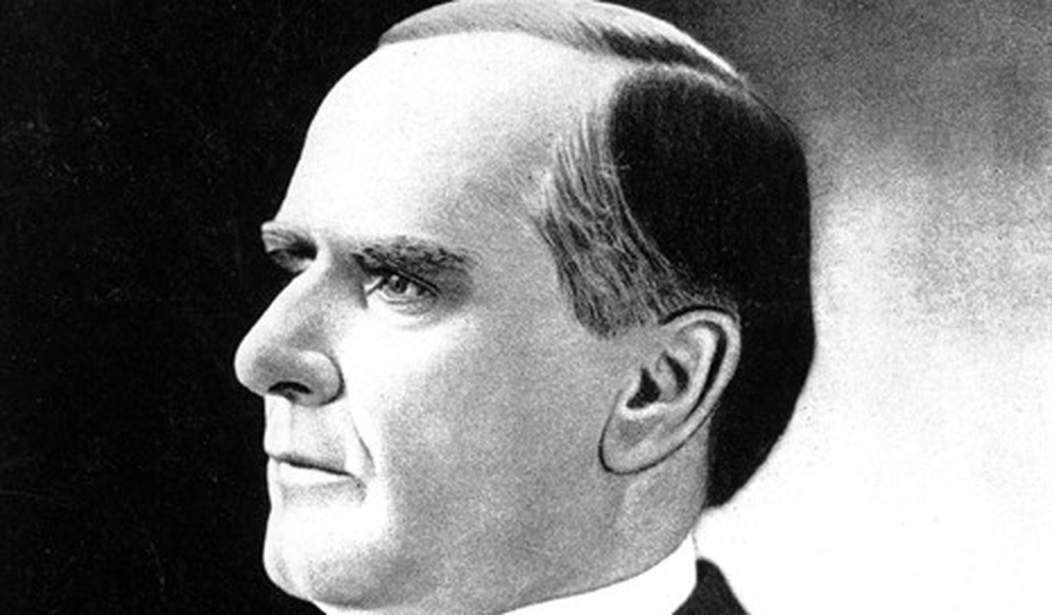Recently, in an unprecedented move, Ontario's provincial government intruded in American politics by trying to divide the Republican Party regarding tariff policy. They did this knowing that there are two strands of GOP thought on tariffs: a pro-free trade belief, and a pro-tariff belief, which the Canadians hope to exploit in their ongoing trade battles with the U.S.
Which brings me neatly back to the issue of higher tariffs. Once again, I am analyzing this as a political issue, and not as an economic one.
The historical GOP was a big fan of tariffs. Abraham Lincoln brought them over from the “American System” of the Whig party, of which he was a prominent proponent. In 1896, the GOP doubled down on them under William McKinley, whom President Trump has praised.
After the Woodrow Wilson presidency, Presidents Harding, Coolidge, and Hoover all favored them (in my earlier column, I mistakenly labeled the first two as pro-free trade). Only in 1952 did the great GOP switch on tariffs occur, when President Dwight Eisenhower came out firmly for free trade. Since then, all GOP presidents and presidential candidates have been rhetorical free traders, except for Donald Trump.
SEE ALSO Tomayto, Tomahto: How Trump Tariffs Boosted Production and Profits for American Tomato Farmers
Notice that I said, “rhetorical free traders.” That is quite telling. All three two-term Republican presidents – Nixon, Reagan, and Bush II – generally promoted free trade, but used higher tariffs when they thought they were appropriate.
Or, perhaps, we should say that they used higher tariffs when they thought it would help them politically?
That is because, politically speaking, higher tariffs have seemed to benefit the GOP. From the very beginning, business interests, which were heavily located in the Northeast, were Republicans who favored protectionism. But after the Civil War, with the return of white Southern Democrats (who had been barred from voting for their rebellion) and the suppression of the black Republican voters in the South by the white Southern Democrats, the GOP strategists realized that they had lost their national majority and that they needed a new way to recreate it by appealing to the swing white voters of the time. These swing voters were the “new ethnic immigrant laborers in the North – often Catholic”, who found protectionism compelling.
Why did these voters find protectionism so compelling? Well, the concept behind it is easily understandable. A laborer who works for a business would and should be very concerned about foreign companies competing with his domestic company, and potentially endangering his employer’s business, and possibly costing him his job (back then, we were talking primarily about male workers). So, that worker is probably going to generally support higher tariffs, especially in hard economic times.
In 1896, GOP strategist Mark Hanna and his client, Ohio Gov. William McKinley - the latter known as the “Napoleon of Protection” from when he served in the U.S House - ran a presidential campaign that unified Republicans and the swing white voters. McKinley campaigned heavily on protectionism, while also welding the monetary issue, which more heavily split the Democrat Party than the Republicans, as a “wedge issue” to paint the Democrats as dangerous radicals who couldn’t be trusted with running the country.
The 1896 McKinley campaign created a broad GOP national majority. Only in 1912, when the GOP was split, did the Democrats win back the presidency. And in 1920, 1924, and 1928, the Republicans won back the presidency and carried the national vote by huge margins while running on protectionism.
But in 1932, the Great Depression cracked the GOP majority, and Franklin D. Roosevelt blamed high tariffs as one of the causes of this depression.
Dwight Eisenhower, who was a non-political general who rose through the ranks under Democrat presidents Roosevelt and Truman, eventually announced he was a Republican. But unlike the earlier Republicans, he adopted Roosevelt’s free trade policies. Although Eisenhower was labeled a “moderate Republican” by his more conservative critics, the Republican conservatives eventually adopted his position on free trade, which came to be considered the position of “conservative Republicans”.
But even conservative Republicans over the years have recognized how popular higher tariffs could be, as I mentioned above.
Now, President Trump is going back to traditional Republicanism by promoting higher tariffs. I cannot comment whether Trump is doing this for political reasons or based on a principled belief that tariffs work (or both). But once again, I can say that it seems to be a positive for him and the GOP politically, as we have seen with the white working-class, as well as the black (male) working-class and Hispanic working-class voters, all of whom have moved decisively towards the Republicans during the past decade.
RELATED: Trump Tariff Triumph: Billions Now Flowing Into US Coffers
Trump carried the big blue-collar swing states – Michigan, Pennsylvania, and Wisconsin – two of three times. And today, in these and other working-class heavy states, including New Jersey, where a competitive election is being fought, the GOP is seeing a steady increase in its registration, especially among the working class.
If I were a Democrat strategist, I would be very concerned about the politics of the Trump tariffs. We have seen this play before, and it has worked well for the GOP, historically. The Democrats may want to learn from that history before they are condemned to repeat it.
Editor’s Note: The Schumer Shutdown is here. Rather than put the American people first, Chuck Schumer and the radical Democrats forced a government shutdown for healthcare for illegals. They own this.
Please help us continue to report the truth about the Schumer Shutdown. Use promo code POTUS47 to get 74% off your VIP membership.














Join the conversation as a VIP Member